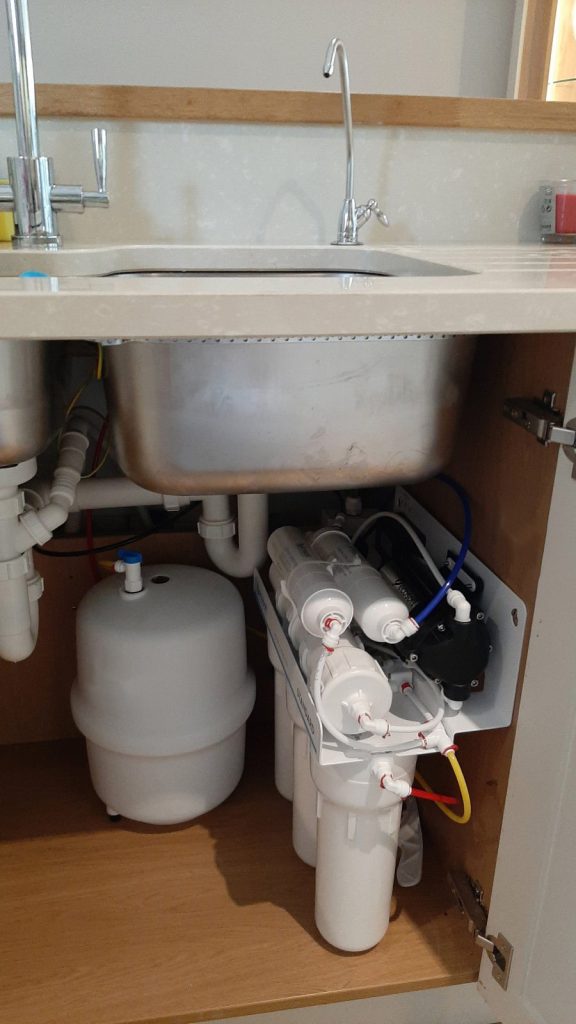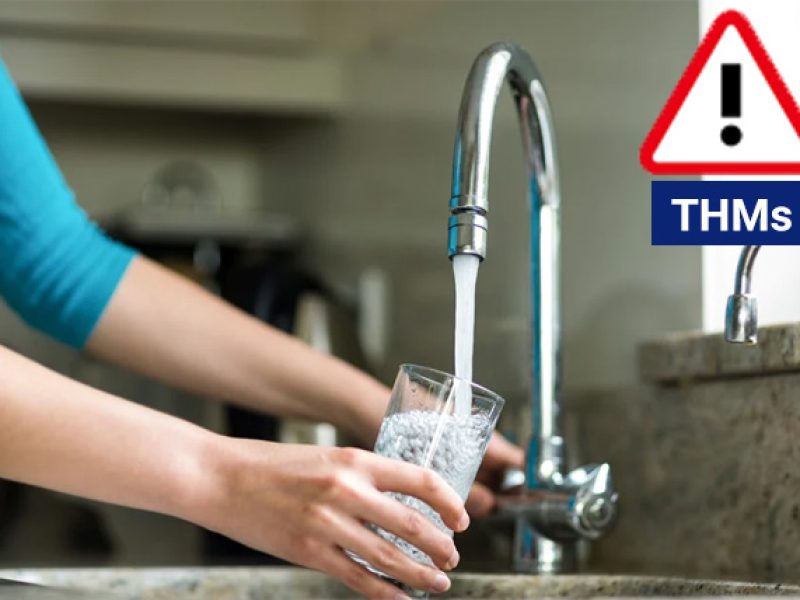Did you see the recent news articles about THMs in Irish drinking water? You might be wondering what THMs are and if they pose a threat to your health. In this blog post, we’ll delve into THMs, how they get into your water, and the current regulations surrounding them. We’ll also explore ways to reduce THMs at home, empowering you to make informed choices about your drinking water.
What are THMs?
THMs, short for trihalomethanes, are a group of four chemicals that can form in drinking water treated with chlorine. Chlorine is a vital disinfectant used to eliminate harmful bacteria and viruses from our water supply. However, when chlorine reacts with naturally occurring organic matter in source water (like lakes or rivers), it can create THMs as a byproduct.
The four main THMs found in drinking water are:
- Chloroform
- Dichlorobromomethane
- Bromodichloromethane
- Dibromochloromethane
How Do THMs Get into My Drinking Water?
So, how exactly do THMs end up in our tap water? It starts with the disinfection process. Chlorine is added to water to kill harmful bacteria and other pathogens, making it safe for consumption. However, when chlorine interacts with organic matter, such as decaying vegetation or agricultural runoff, it can produce THMs as a byproduct. These THMs then make their way into our water supply.
The amount of THMs in your drinking water depends on several factors:
- Source water: Water sources with higher levels of organic matter are more likely to produce THMs when treated with chlorine.
- Chlorine dosage: The amount of chlorine used for disinfection can influence THM formation.
- Water temperature: Warmer water generally leads to higher THM levels.
- Pipe age and material: Older pipes, particularly those containing asbestos cement, may leach additional organic matter into the water, increasing THM formation.
Are THMs a Health Risk?
The health effects of THMs are a subject of ongoing research. While short-term exposure is unlikely to cause any problems, some studies suggest a possible link between long-term exposure to THMs and certain health issues, including:
- Cancer: Certain studies have shown an association between long-term exposure to THMs and an increased risk of bladder cancer and colorectal cancer. However, the evidence is not conclusive, and more research is needed to determine a definitive cause-and-effect relationship.
- Reproductive health problems: Some studies suggest a possible link between THM exposure in pregnant women and an increased risk of miscarriage, low birth weight, and certain birth defects. However, these studies have limitations, and more research is necessary to confirm these findings.
- Other health effects: Some studies suggest that long-term exposure to THMs may be linked to other health problems, such as respiratory issues and nervous system problems. However, the evidence for these effects is even weaker than for cancer and reproductive health concerns.
It’s important to note that these studies are not conclusive, and the benefits of chlorine disinfection in preventing waterborne diseases far outweigh any potential risks associated with THMs at current levels.
What are the Legal Limits for THMs in Europe and Ireland?
The European Union (EU) has established a maximum contaminant level (MCL) of 100 micrograms per litre (µg/L) for total THMs in drinking water. This means the combined concentration of all four THMs should not exceed this limit.
In Ireland, the Environmental Protection Agency (EPA) oversees water quality standards and sets limits for THMs. The legal limit for THMs in Ireland is in line with EU regulations, at 100 µg/L. Water providers are required to regularly test their water sources to ensure compliance with these standards.
How Can I Reduce THMs in My Drinking Water?
While THM levels are generally well-controlled in Ireland, some people may still be concerned or simply prefer the taste of filtered water. Here are a few ways to reduce THMs at home:
- Boiling: Boiling your water for one minute can volatilize (evaporate) some THMs. However, boiling also removes beneficial minerals and can alter the taste of the water. Let the water cool completely before consuming to avoid scalding.
- Activated carbon filtration: Activated carbon filters are effective in removing THMs and other contaminants from water. These filters are often found in Brita jugs, refrigerator filters, and some countertop filtration systems.
- Reverse osmosis systems: Reverse osmosis (RO) systems use a semi-permeable membrane to remove a wide range of contaminants, including THMs, from your drinking water. RO systems offer the most comprehensive filtration but require professional installation and maintenance.

Should I Consider a Reverse Osmosis System?
Whether a reverse osmosis system is right for you depends on your individual needs and priorities. Here are some things to consider:
- THM levels in your area: If you’re concerned about THMs specifically, you can contact your local water supplier to inquire about THM levels in your area.
- Overall water quality: RO systems can remove a variety of contaminants, not just THMs. If you’re concerned about other impurities in your water, an RO system may be a good option.
- Budget and maintenance: RO systems require an initial investment and ongoing maintenance, including filter replacements.
- Water consumption: RO systems typically produce a slower flow rate than other filtration methods. Consider your daily water consumption needs.
Take Control of Your Water Quality
While THMs in drinking water may be a cause for concern, there are steps you can take to safeguard your health and well-being. By understanding the sources of THMs, staying informed about legal limits, and investing in a reliable filtration system like reverse osmosis, you can enjoy the benefits of clean, filtered water right from your tap.
At Hydrotech Water Services, we’re committed to helping you make informed choices about your water quality. If you’re considering making the switch to filtered water, our team is here to provide expert advice and guidance. Together, let’s ensure that every sip you take is pure, refreshing, and free from harmful contaminants.

